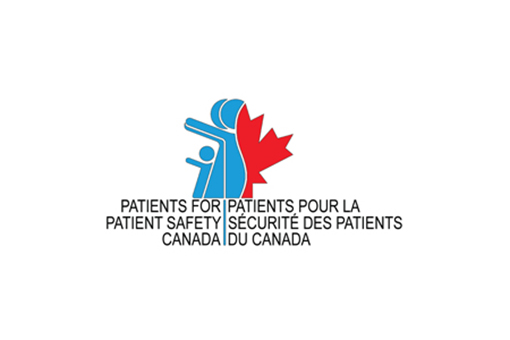One son-in-law’s pursuit to change the system
November 2, 2012
Claire Friedman was not the mother-in-law of sitcoms and punchlines.
She was active, vibrant and loved by friends and family.
So when Bernie Weinstein walked into the hospital that day in 2002 and saw his mother-in-law restrained in a chair, he was shocked.
“My mother-in-law was a patient in the Jewish General Hospital, recovering from cancer surgery,” says Bernie. “She was a very active person, constantly walking the corridors, talking to people.”
That Friday evening, Bernie and wife Sandy had stopped by the hospital to check on Claire.
“When we arrived, we found her sitting in a chair, strapped down, pretty much comatose,” says Bernie. “She’d been in good shape Thursday.”
The couple approached a nurse for an explanation of why Claire, who loved to be up and about, was strapped down. They were assured Claire was fine.
“Your mother-in-law is over 80 years old,” said the nurse. “She has low blood pressure. This is quite normal. This happens all the time.”
The nurse also assured them that Claire would be fine to leave the hospital on Sunday for Mother’s Day visiting. Claire was more herself on Saturday and by Sunday she was much better.
Bernie says he remained suspicious about the matter but set his concern aside. But on a subsequent visit, another nurse pulled him aside and said his mother-in-law’s temporary stupor was caused by a medication error.
“She was given the wrong medication and they lied to us and told us it was normal,” says Bernie. “I really got upset, and I'm not a very quiet person.”
After several drafts — toned down in editing, by Sandy — Bernie sent off a letter to the Jewish General Hospital’s ombudsman. Soon after, Dr. Joseph Portnoy, the hospital’s director of professional services, phoned Bernie to explain the details of the error and the steps being taken to ensure it wasn’t repeated.
But what really shocked Bernie was Dr. Portnoy’s humility.
“On behalf of the staff, we are sorry,” Bernie recalls him saying. “We’re sorry because of what happened and we’re sorry we didn’t tell you the truth.”
Then the doctor asked Bernie if he would be interested in sitting as a community representative on the hospital’s Quality and Risk Management Committee.
Bernie, who is now also a member of Patients for Patient Safety Canada (a patient-led program of the Canadian Patient Safety Institute, now Healthcare Excellence Canada), has gone on to help implement a number of positive changes at the hospital.
The medication error in his mother-in-law’s care prompted inquiries with the pharmaceutical company, which then changed the appearance of the medication to be more distinct.
The case was an example of where the health provider wasn’t at fault, says Bernie. It was a technical or system error that, as it turned out, had caused other patients harm.
“The system had to be changed and that’s the sort of approach taken by the Quality and Risk Management Committee,” he says.
The Jewish General also implemented a disclosure policy and Bernie became involved with the hospital’s Speak Up program.
The program is part of the three-pronged approach at the hospital to improve communications between clinicians and patients.
“It encourages patients to speak up in an open and respectful manner, whenever they don't understand what they have been told or are uncomfortable about what is happening around them,” says Bernie.
The Speak Up program works with clinicians to improve their communication and stresses listening closely to what patients and their families are telling them.
“In general, when you went into the hospital as a patient you lost all your power,” says Bernie. “You could be the biggest corporate magnate and lose all your power.
“But having patients and their families be part of the medical team will make the entire system better.”
Claire died a couple of years after the incident, in January 2004, at age 81. Bernie still thinks about her often.
“She was a very special person,” he says. “She was very much loved by her children and grandchildren. She will be very well remembered.”
Bernie deeply appreciates the action of the Jewish General Hospital in making amends to Claire’s loved ones. The problem with the initial coverup, he said, is that it created a divide between the hospital and the patient’s family.
“We felt like they didn’t trust us,” he says. “It made us feel unimportant.”
The sincere apology acted to restore the trust and connections.
“An apology and explanation of what’s being done makes you feel like you’re part of the process and that something good, something positive came out of the incident.”
Claire’s experience in healthcare reminds us that when patients and their families are included in the medical team it makes the system safer for everyone.

Want to read more?
